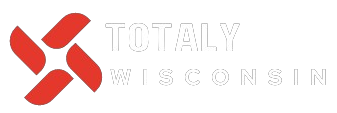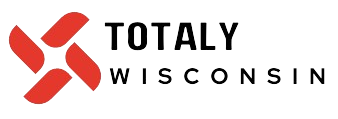Rue Mapp is on a roll.
Founder and CEO of California-based Outdoor Afro, Mapp has recently appeared on outdoor media platforms with articles about her efforts to recruit minority hunters in Outdoor livingMeateater Television, as well as public appearances at the Outdoor Writers Association of America conference and the annual Backcountry Hunters and Anglers meeting earlier this summer.
She also has a recent book coming out in the fall titled “Nature Swagger: Stories and Visions of Black Joy in the Outdoors.”
Mapp, a National Wildlife Federation communications award winner, spent 30 minutes with him Outdoor news in August by phone, sharing his vision for his organization, as well as his broader hunter recruitment efforts and some of his hunting experiences.
ON: You started Outdoor Afro, blogging at your kitchen table in 2009. How substantial is it now?
Map: We have programs in 40 states and 56 cities. We activate our work through a recruited and trained network of volunteers. These are people from all over the country, and we’ve been fortunate to have representatives from New York to Ohio, Chicago, Detroit, and the Twin Cities. We are in 50 states!”
ON: Your outdoor journey began on your dad’s family property, a hobby fruit farm. It’s called “base camp,” and it seems to be the core of many people’s stories about hunting and the outdoors, regardless of their race, creed, or color. How do we provide access to people who didn’t have a base like you?
Map: That’s what Outdoor Afro is all about: giving people that kind of base camp/family reunion experience. In my work, I am guided by the values that my father passed on to me – the value of hospitality, the value of hospitality, the value of helping people discover places they didn’t know existed or feel comfortable discovering on their own. My job is to facilitate people feel welcome in these places.
ON: In an interview with Hal Herring via the BHA podcast, you said that you like hunting because, unlike an academic exam, you can be completely prepared and still not succeed. Why do you think this is an advantage of hunting?
Map: Once you reach the age of 40-50 and have some professional skills in your field of expertise, adults are less likely to become apprentices. I feel like hunting is one of those activities that allows you to become recent and vulnerable again. It hits the ego a bit too.
It’s not just about you and how much money you spent on your equipment. These are factors that you have no control over. Pets may not show up. The weather may interfere.”
ON: Let’s talk about R3 programs – recruitment, reactivation and retention. Some folks at Outdoor News were mildly critical of R3 because there’s a lot of emphasis on taking kids fishing for a party and then never hearing from them again. Do these programs work? Do they need refinement?
Map: I believe these programs come from a good source. I, for one, didn’t cut my teeth going through the conservation community, so I don’t have any natural attachment to all the acronyms we associate with it. I approach it from real-world experience, trying recent things outdoors.
Overall, whether we’re talking about R3 or any other engagement work, when we connect with youthful people, it’s lovely, it makes us feel good, it’s good for photography, but I think it’s a very selfish experience. Yes, you feel good when you do something wonderful, magical and memorable. But youthful people are attached to families, and families to communities. Children do not go home and turn their families into stewards of the environment.
This story is like a broken record: we take this mythical kid from a bad neighborhood, and then we add any outdoor experience – hiking, hunting, camping – the kid has a tough time, then there’s a breakthrough, then the kid comes home and becomes a steward of the environment.
This is a fairy tale about nature conservation. What really happens is that the kids come home and their parents ask – and I know because I’m a mother of three – “How was the field trip?” and they say, “Okay.” And this, I present to you, is the end of your work.
For this reason, the Outdoor Afro project was intentionally multi-generational, recognizing that parents and caregivers also need nature. When I notice that a family is facing such an experience, they are much more likely to be able to incorporate this experience into their lives. And people need lots of touches. I didn’t get here because of one backpacking trip; this family ranch, Girl Scouts, and many of the groups I participated in built this point of view.
ON: What is your reaction to being outdoors? As an African American woman outside the home, do you feel welcome?
Map: Yes. Sure, there are fears and perceptions that stem from our past of Jim Crow-style exclusion. But I am grateful in the times we live in today that this is not our everyday reality. In fact, the problem these days is sometimes feeling overstayed.
Where people go out of their way to make me feel welcome and I just say, “Okay, just chill out a little. That’s great.”
ON: You have described yourself as a restless hunter. Many people reading this have struggled with this in the deer stand. How did you overcome it?
Map: Just keep practicing… and keep getting looks from other hunters asking, “Why are you pulling out that pack now?” I improved. Hunting offers exercise in stillness and increased awareness of the surroundings.
When you live in a world where multitasking is the norm, hunting means completely resetting that way of being. You just need to have piercing senses and work on being undetectable.
ON: In one of your interviews you mentioned the term “trip to the future”. What is this?
Map: Sometimes we get so stressed about what might happen instead of worrying about what we are doing. I think we should be more ourselves at this point. Hunting was a great platform for me to stay in the here and now. Because that’s really all we have right now.
ON: Earlier this summer in Michigan, the state DNR received several criticisms for its sponsorship of a “black trek event.” Can you explain why you think such events are necessary for those who may ask, “Why can’t it just be a walking event?” Why is a group like Outdoor Afro necessary?
Map: Another way of thinking is that if other types of events were welcoming and engaged with wider communities, there would be no need for them. It’s not about exclusion, but about invitation. You have to make a compelling invitation to get people to say, “Yes, this is for me.”
The idea is to be specific about the invitation, not a call to exclude anyone. I have noticed that as people become more comfortable with this broad outdoor conversation, they begin to act on their own and become more comfortable joining larger groups.
Trust me, I’ve joined my fair share of groups that are not racially defined, and they’re almost always white, and people perform at a level I haven’t progressed to yet. And I know what it’s like to be the only black person in an entire activity or group and not feel like I have the level to participate in it.
So when you create affinity groups, people can dive into it and connect with each other and find a connection. I think back to mom groups when I was a recent mom and found common ground.
ON: Do you have a favorite hunting trip or experience?
Map: I love duck hunting.
This is my favorite. Duck hunting combines many things that bring me joy and peace, for example, I love being in the obscure and hearing the world open up and listening to the layers of sounds and music around me. It’s water. And the ducks are just damn tasty.
ON: Congratulations on several pending September nuptials.
Map: Yes, I am marrying the man of my dreams who is also interested in hunting and will share the hunting blind with me for life.
More information about the Rue Mapp organization can be found online at www.outdoorafro.com.


